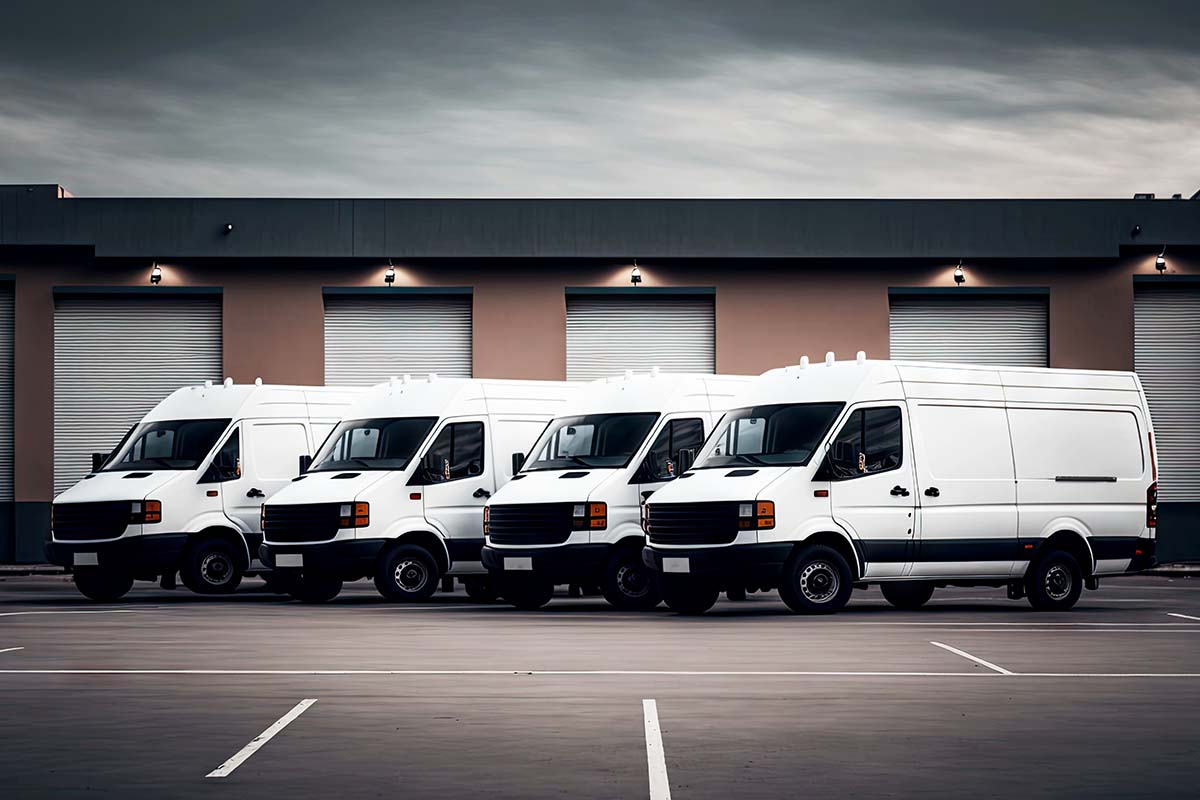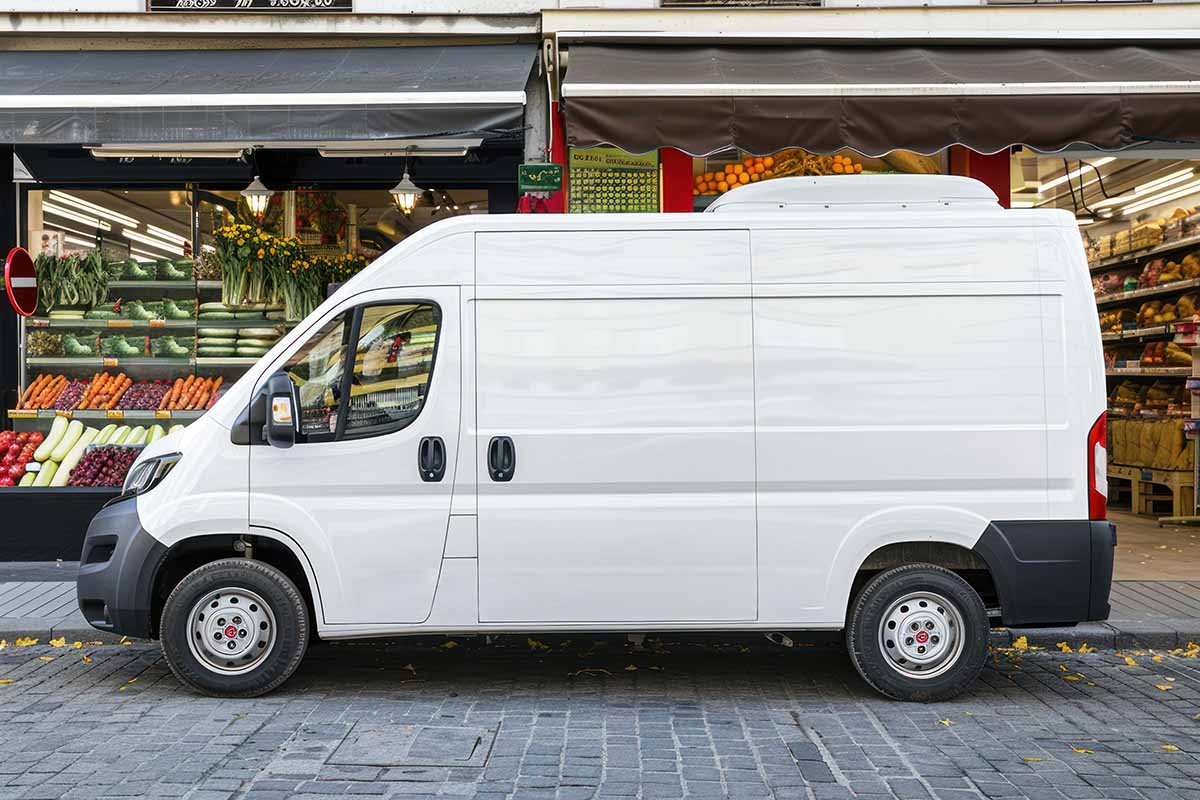Compact vs. Full-Size Cargo Vans
- Compact vs. Full-Size: Compact vans offer better maneuverability and fuel efficiency, ideal for urban settings; full-size vans provide more cargo space and payload.
- Cargo Capacity: Full-size vans are best for heavy-duty tasks with up to 300+ cubic feet of space, while compact vans suit smaller loads and frequent short trips.
- Customization Flexibility: Full-size vans allow extensive customization, making them versatile for specialized industries; compact vans are more limited in this regard.
Suppose any part of your business involves transporting and delivering goods.
In that case, you need to ensure that you have a van that fulfills all of your requirements and expectations as a reliable workhorse.
Some options are too restrictive, such as a pick up truck, which is likely to be too one-dimensional to answer all of your delivery demands.
However, there is one option that stands out as an obvious answer as a result of its size and versatility.
If your business has a cargo van, it will most likely be up to each task you set it.
Having settled the argument that a cargo van is the smart choice for your business, the next question to answer is whether you should buy a compact or full-size version.
A quick overview
In an attempt to settle the argument and point you in the right direction of the cargo van best suited to your business needs, let’s start with a brief overview of what a compact and full-size cargo van offers.
It has to be said that many business owners will likely consider a full-size cargo van to be the default option.
A van of this stature is capable of an impressive payload and is an all-round sturdy and reliable asset.
What is particularly appealing about a full-size cargo van is that it manages to combine the desirable attributes of agility and comfort, similar to driving an SUV, but with the advantages that come with having a truck-size vehicle.
As the name suggests, a compact cargo van is a smaller version of a full-size cargo van. It can be more nimble than its bigger counterpart, and more economical to run too.
What it compromises in strength compared to a full-size version, the compact cargo van more than compensates by offering greater flexibility and convenience.
If you have many small deliveries to make in an urban setting, a compact cargo van would definitely be a viable option.
This level of flexibility has been the reason for the stellar growth in compact cargo van sales in the last decade.
Both options have plenty to recommend about them. Let’s drill down into some finer details for a closer comparison between compact and full-size cargo vans.
How do they compare for size and maneuverability
Without doubt, compact cargo vans are smaller and more agile. This makes them ideal for navigating crowded urban areas or tight spaces.
Suffice to say, if your delivery route often takes you into city centers with narrow streets and limited parking, a compact van can be a real game-changer.
These vans typically have a lower roof height and shorter wheelbase, allowing for easier maneuverability and parking.
That’s why they’re perfect for businesses that need to make frequent stops or deliveries in congested areas.
On the other hand, full-size cargo vans win the argument over space.
They offer significantly more cargo space and payload capacity.
While they’re larger and can be more challenging to navigate in tight spaces, they’re well-suited for jobs that require transporting bulky items or large volumes of goods.
You have to decide if a full-size van’s extra capacity is so important to you that it might outweigh the disadvantages of its size, compared to a compact cargo van.
Winning the cargo capacity and payload argument
One of the most significant differences between compact and full-size cargo vans is their cargo capacity.
Compact vans typically offer around 120 to 150 cubic feet of cargo space to give you an idea of the difference between the two.
This volume of capacity makes them well suited to transporting smaller loads or tools and equipment for trades like plumbing or electrical work.
In addition, they are also more fuel-efficient, which can deliver lower operating costs for businesses that don’t usually need to carry large amounts of cargo.
In contrast, full-size cargo vans win the capacity and payload argument. It typically offers in excess of 300 cubic feet of cargo space, along with higher payload capacities that can exceed 4,000 pounds.
These numbers make them ideal for industries that have heavy-duty transportation requirements.
Typical industries that are suited by a full-size cargo van include construction services, catering, or moving services.
The bottom line is that full-size vans do what they say on the tin. They are designed to handle bigger jobs, and their larger interiors can often be customized with shelves, racks, and other storage solutions to optimize efficiency.
How do they compare for fuel efficiency and operating costs?
As you might expect, when you consider their size, compact vans generally have better fuel efficiency than full-size vans.
This is a factor which can lead to significant cost savings, especially for businesses that clock up a lot of miles. Their smaller engines and lighter weight help contribute to lower fuel consumption.
This makes them a more economical choice for frequent, short trips.
However, if your work involves transporting large loads over long distances, the fuel efficiency of a compact van may be outweighed by its limited capacity.
You could potentially require more trips to get the job done.
However, full-size vans, while less fuel-efficient, do offer the advantage of being able to carry more in one go.
This can save time and reduce overall operating costs if fewer trips are needed.
Customization and versatility
Both compact and full-size vans offer a range of customization options, but full-size vans typically provide more flexibility due to their larger size.
This means that full-size vans can be upfitted with a wide variety of accessories, from shelving units to refrigeration systems.
This makes them highly versatile and adaptable for all sorts of specialized industries. Compact vans also offer customization options, but their smaller interiors limit the extent of modifications compared to full-size models.
You are unlikely to be disappointed with either van option, when you consider what they both offer in terms of performance and reliability.
In essence, choosing between a compact and a full-size cargo van depends on your specific needs.
If your priorities are maneuverability, fuel efficiency, and cost-effectiveness, especially in urban environments, a compact van is likely the better choice.
However, if you need maximum cargo space, a higher payload capacity, and greater versatility for larger jobs, a full-size van will better suit your needs.
Evaluate the demands of your business and talk to your cargo van supplier to find an option that will become invaluable to your daily business operation.





















